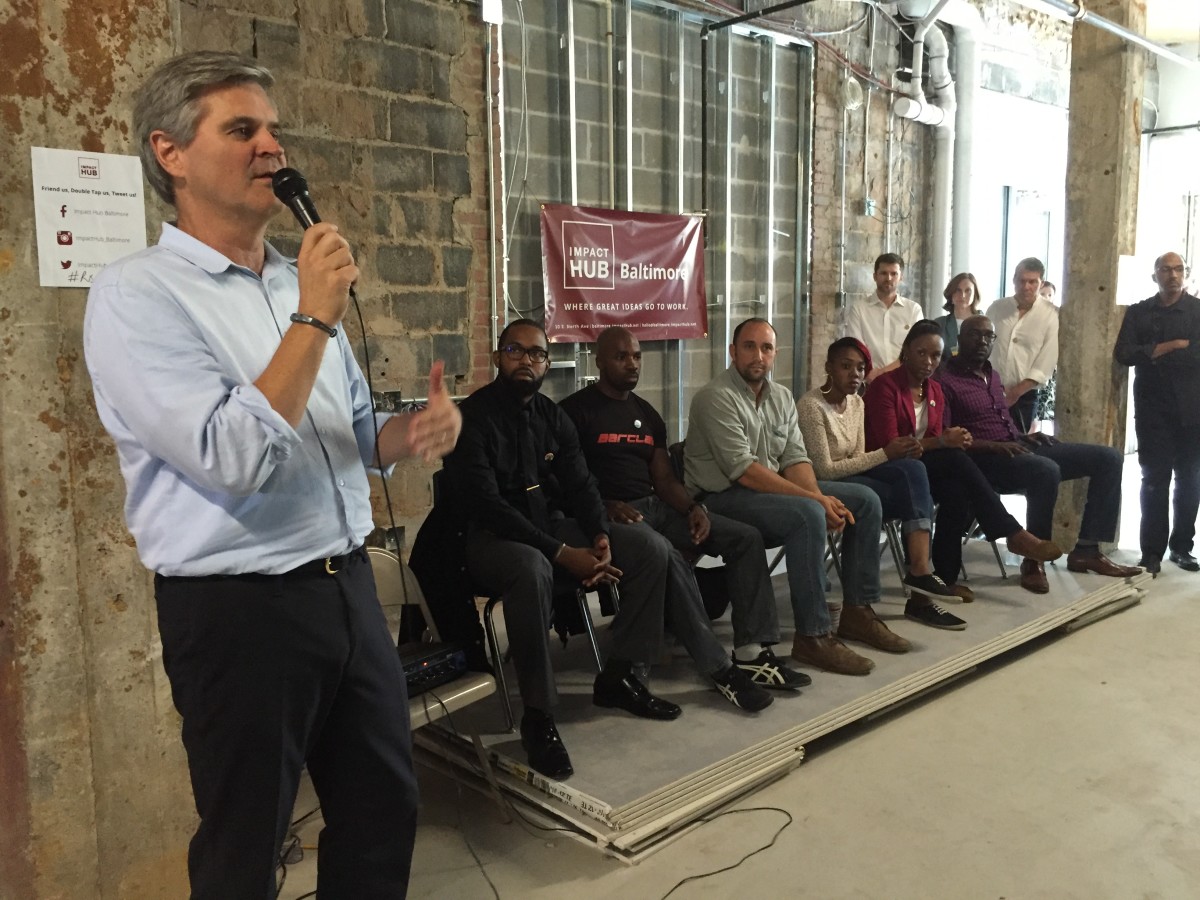Next month, eight startup companies from the Central Pennsylvania area will compete for a chance at $100,000 as part of the Rise of the Rest tour.
AOL founder Steve Case started Rise of the Rest in an effort to find startups outside of traditional enclaves like New York City and Silicon Valley. The Harrisburg-York-Lancaster area will be the first stop on a six-city tour for Case and his team. Our sister site Technical.ly DC first reported on the stop in June.
“Rise of the Rest celebrates and funds emerging startup ecosystems across the U.S.,” Case said in a news release announcing the chosen cities. “We are thrilled to hit the road once again to find the companies driving innovation and creating jobs across the country.”
Sign up for weekly news on innovation across Pa.Case told the Associated Press he decided to include Harrisburg, York and Lancaster as part of one Rise of the Rest stop because he thinks south central Pennsylvania could compete with bigger cities if local business leaders work collaboratively.
“It’s still kind of a mystery how it all came about,” said Lisa Riggs, president of the Economic Development Co. of Lancaster. But, she says, the regional organizations quickly realized what a huge opportunity had fallen into their laps.
“We have a lot of young, interesting companies here. But I’m not sure we have our elevator pitch together yet,” she said. “There are not a lot of companies who are used to being in this disruptive space.”
Riggs said a big advantage Lancaster offers to startup companies is the ability to connect people easily to resources and assistance since it’s a relatively small community. “But the gift of Rise of the Rest is that it is forcing us to look critically at our community and our ecosystem, Riggs said. “Where are our strengths, where are our weaknesses?
The field of 80 applicants will soon be whittled down to eight startups that will compete for the grand prize. Riggs says she thinks it’s crucial that as part of the process, business organizations make sure to connect with the other 72 companies as well, once the RoR is over.
We’re a little more risk-averse, and not so proud of failure.
Steve Fafel, director of business development for Ben Franklin Technology Partners of Central & Northern Pennsylvania, is based in Lancaster. He says the Rise of the Rest visit validates a lot of the work local stakeholders have been doing for a long time in central Pennsylvania.
“People know what can happen here,” he said. “This will let us shine a spotlight on some of these great small companies that are sort of existing in the shadows right now. Startups around here don’t even know all the things they have access to.”
There are some challenges to fostering a startup culture in the region, however, Fafel said. “We’re a little more risk-averse, and not so proud of failure,” a trait that serial entrepreneurs often boast about. “How can we leverage big relationships we already have? I think we need some big, visible wins, and this gives us the platform to show what we’re already doing here.”
But there is opportunity and there is money available, he added. “What we need to do now is get that wealth out of wallets and into communities.”
Kevin Schreiber, president, and CEO of the York County Economic Alliance, pointed to the “York Plan,” a 15-point plan developed during World War II by the local manufacturers’ association to maximize efficiency in industrial production.
The York Plan became a national model for post-war factories and led to lower unemployment in York. Among the products made in York in its heyday were refrigeration machinery, safes, artificial teeth, pretzels and of course, the York Peppermint Patty. Continental Wire and Cable, Sylvania and Caterpillar all had plants in York by the 1950s. But between 1970 and 2000, York lost 11 percent of its manufacturing jobs; the relocation of the Caterpillar plant in the 1990s hit particularly hard.
Schreiber thinks it’s time for York Plan 2.0.
“What is a method we can use to leverage existing talent, and also support the next generation, that will be a good outcome for us locally as well?” he said. “What do we do locally to focus attention on our shifting economy?”
Eighteen percent of York’s workforce is advanced manufacturing, Schreiber said, which includes large companies like Harley-Davidson and BAE Systems as well as smaller ones like Tooling Dynamics and Legacy Athletic.
“We have the big guys and the little guys. We have a mix and a competitive edge,” Schreiber said. “But we know manufacturing will continue to automate as companies continue to try to be more efficient. So what we need to figure out is how to pivot our economy and continue to evolve with manufacturing.”
[googlemaps https://www.google.com/maps/d/u/0/embed?mid=1fAjLwwFCWeFH3RWL0dxRnqZF5y4&w=300&h=150]







